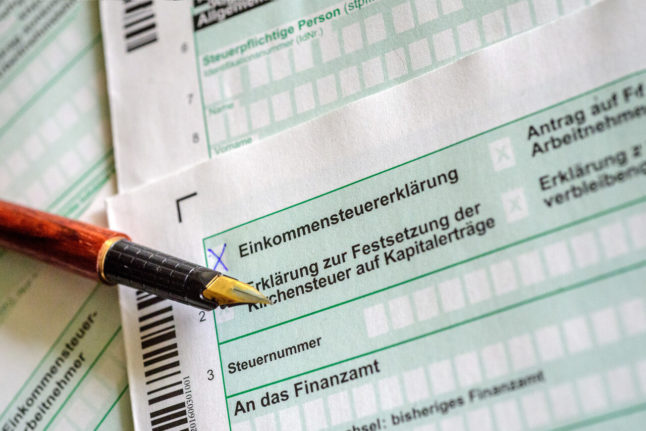At the moment, only children aged five and above can get vaccinated against Covid-19 in Germany.
The European Medicines Agency (EMA) has approved the use of a reduced dose of the Pfizer/BioNTech mRNA vaccine for children between the ages of five and 12, and this age group are able to get vaccinated by doctors at practices or at dedicated vaccine centres.
Back in May, Germany’s Standing Vaccines Commission (STIKO) issued a general Covid jab recommendation for 5-12 year olds. Previously, they had only recommended the shots to children with pre-existing conditions or vulnerable contacts.
READ ALSO: Germany’s vaccine panel recommends Covid jabs for all children over five
Of course, some parents are keen to get their younger children vaccinated as well – and news from the US, where both Moderna and Pfizer/BioNTech has recently been approved for children under five, has given them hope that the same will happen in Germany.
So what exactly is going on?
Well, at the moment, there does seem to be some movement in that direction, but things are still up in the air.
Back in April, Moderna announced that it had submitted a request to the European Medicines Agency (EMA) for a variation to the conditional marketing authorisation.
In plain English, this means they want permission to roll out a 25mg dose of their vaccine (as part of a two-dose series) for children aged six months to five years. This is the same dosage that is being used to vaccinate toddlers and babies in the US.
In response to a question from The Local, Pfizer/BioNTech said it was also planning to file for authorisation for the under-fives vaccine from the EMA in early July.
Depending on the EMA’s decision, this could pave the way for very young children to get the Covid jab in Germany.
Of course, this doesn’t necessarily mean that the authorities will be recommending that all parents rush out and vaccinate their young’uns.
Speaking to the Funke Media Group back in March, Health Minister Karl Lauterbach (SPD) struck a cautious tone when talking about vaccines for under fives.
“In the studies, the vaccines have not shown the immunisation effect in young children that we had hoped for. But it is precisely in this age group that the effect must be particularly clearly proven,” he said.
“It is therefore unclear at the moment whether there will be a vaccination recommendation for under-fives in Germany.”
READ ALSO: KEY POINTS: German Health Ministry lays out autumn Covid plan
For its part, the EMA said it was in talks with Pfizer ahead of the submission of its application for approval.
“To date, no application for an extension of indication for the use of Comirnaty (Pfizer/BioNTech) in children under five has been submitted to EMA,” a spokesperson for the EMA told The Local.
“However, EMA is in contact with the company about the possible submission of data and we will communicate on our website should we receive a request for an extension of indication.”
At the time of writing, the German Health Ministry and Robert Koch Institute (RKI) had not responded to a request for comment.



 Please whitelist us to continue reading.
Please whitelist us to continue reading.
Member comments